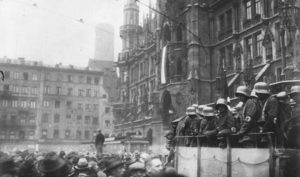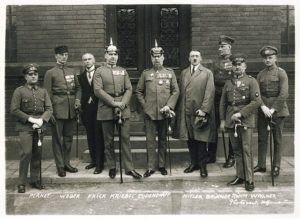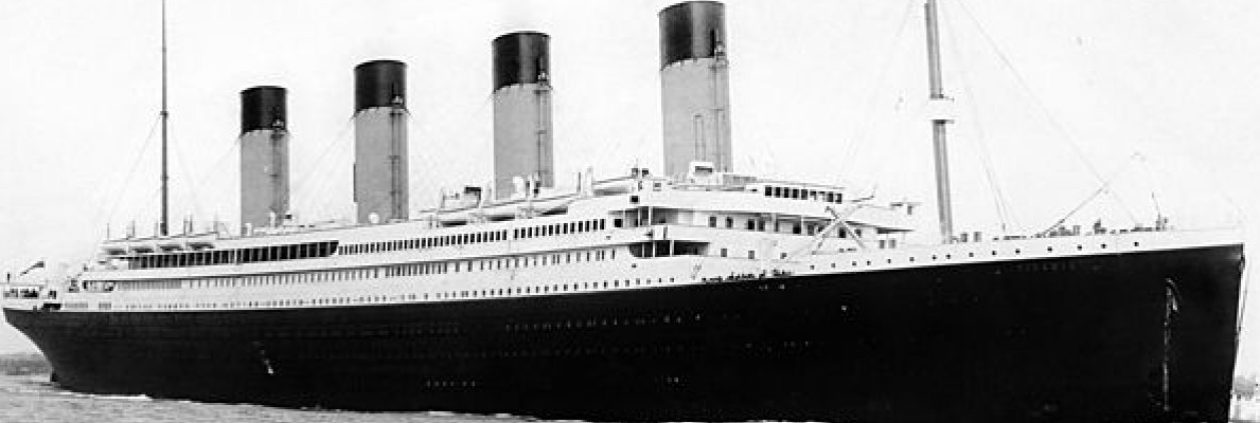
Photographer unknown
German Federal Archives via Wikimedia Commons
The end of World War I had left Germany in dire economic straits. The allies demanded reparations through the Versailles Treaty resulting in staggering inflation as Germany tried to pay. By 1923 the German mark was valued at four billion marks per dollar causing many who disliked the new democratic government to join the nationalist Nazi Party. Others were drawn the Nazi’s as well for their strong anti-communist views and their vocal dislike of Jews.
Adolf Hitler planned a coup in Bavaria that he hoped would spread and bring down the central government. On 8 November 1923, Hermann Goering surrounded the Munich beer hall where Bavarian officials were meeting with local business leaders. Hitler, with the aid of Nazi stormtroopers, charged into the hall with Hitler firing off a gun proclaiming the revolution has begun. The Bavarian officials decided to reluctantly support Hitler. However, the following day they would rescind that support and ordered troops to surround the Nazi forces that had taken control of the War Ministry building. Hitler decided to lead a March to the center of Munich. He had 3,000 marchers with him to 100 or more policemen blocking them. Shots were fired and 16 Nazis and 3 policemen were killed. Goering was wounded the groin and Hitler had a dislocated shoulder and managed to escape.

Photographer: Heinrich Hoffmann (1885–1957)
Source: German Federal Archives via Wikimedia Commons
The Beer Hall Putsch collapsed, and Hitler was arrested. He was charged with treason and sentenced to 5 years in jail. During his time in the Landsberg fortress, he wrote his autobiography Mein Kampf. Political pressure on the Bavarian government got his sentence commutated and he ended up serving only nine months in jail. The Nazi movement would continue to grow in strength in the 1920’s gaining more support against the Weimar government, Communism and Jews. The Beer Hall Putsch would be remembered by the Nazi Party. Although they lost, they used it for propaganda purposes and celebrated the heroes of that day.
Sources:
“Beer Hall Putsch | Facts, Summary, and Outcome.” Encyclopedia Britannica, 1 Nov. 2023, www.britannica.com/event/Beer-Hall-Putsch.
“Beer Hall Putsch Begins.” HISTORY, 21 July 2010, www.history.com/this-day-in-history/beer-hall-putsch-begins.


